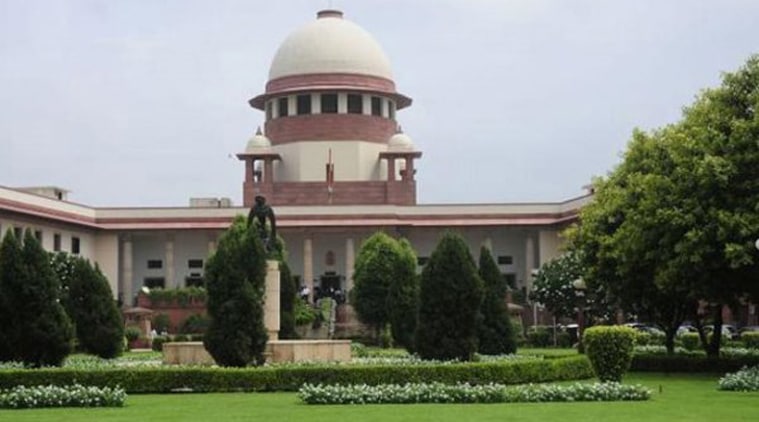 Menu
MenuThe Supreme Court on Tuesday agreed to hear the petition filed by an NGO seeking to reverse the court's judgment on Section 377, which makes gay sex a criminal offence.
Written by Utkarsh Anand | New Delhi | February 3, 2016

The bench, also comprising Justice Anil R Dave and Justice J S Khehar, accepted the argument by senior lawyers appearing for gay rights organisations that this matter be referred to a Constitution Bench for an authoritative ruling.
Observing that the question of criminalising homosexuality “involves very large and significant constitutional issues”, the Supreme Court on Tuesday referred to a five-judge Constitution Bench its 2013 ruling that upheld a law making gay sex an offence punishable by 10 years to a life term in jail.
Offering hope to gay rights organisations, a three-judge bench headed by Chief Justice of India T S Thakur said that the clutch of curative petitions demanding reversal of the verdict should be heard by a larger bench since they pose questions with “constitutional dimensions of importance”.
The bench, also comprising Justice Anil R Dave and Justice J S Khehar, accepted the argument by senior lawyers appearing for gay rights organisations that this matter be referred to a Constitution Bench for an authoritative ruling. A curative petition has less than one per cent success rate in the apex court, but the bench recorded the petitioners’ submissions and said the larger bench shall be constituted appropriately to hear the matter. Since the case has been referred and no notice issued, the Centre is still to appear in the matter to justify the constitutional validity of Section 377 of the IPC. A curative petition is the ultimate legal remedy available to a petitioner against the main judgment.
A batch of petitions, led by NGO Naz Foundation, had challenged the 2013 judgment and the decision on the review petition rejecting their plea to de-criminalise homosexuality. It was in April 2014 when these petitions had come up for hearing the last time. The hearing of the petition in an open court is a rare opportunity for a petitioner to point out errors, if any, in a judgment. The order of reference on Wednesday came after a galaxy of senior lawyers, including Kapil Sibal, Anand Grover and Colin Gonsalves, submitted that the top court judgment in 2013 has curtailed the most private of the rights of an individual by criminalising the right of one’s sexual preferences and sexuality.
“By the impugned judgment, present as well as future generations have been bound to a life of indignity and stigma. If not corrected now, this verdict will result in grave public injury and it will deprive people of their most private right. It involves huge constitutional issues,” Sibal argued.
The bench agreed that the matter touched subjects of constitutional importance and hence a larger bench should hear eight petitions. The court also clarified: “We are not issuing notices at present. Let it be heard by a Constitution Bench.we don’t need to delve deeper into the issue right now.”
Meanwhile, following a query from the bench, the counsel for Apostalic Churches Alliance and the Muslim Personal Law Board stood up to contend that they are opposing the curative petitions. Citing religious scriptures and values, the Churches’ counsel said that “homosexuality is an abomination in the Bible.” The two counsels added that their organisations had also appealed against the 2009 Delhi High Court judgment that decriminalised gay sex by holding that Section 377 of the Indian Penal Code violated the principles of equality and non-discrimination.
The bench recorded their opposition in its order of referring the matter to the Constitution Bench, which it said should be set up at an early date.
In December 2013, a two-judge bench of the apex court had withdrawn the legal protection to what it called a “minuscule fraction of the country’s population” comprising lesbians, gays, bisexuals and transgenders (LGBT). It ruled that Section 377 will continue making gay sex — “irrespective of age and consent” — an offence, while adding that Section 377 did “not suffer from any constitutional infirmity”.
Leaving it for Parliament “to consider the desirability and propriety of deleting Section 377 from the statute book or amend it,” the top court had set aside what it called the “legally unsustainable” Delhi High Court verdict that Section 377 violated the principles of equality and non-discrimination enshrined in the Constitution.